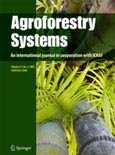We elucidate the value orientations (VOs) towards wild meat/wildlife in the Tshopo Province of the Democratic Republic of Congo, distinguishing between the provincial capital and rural areas. Based on stories prompted by four primary emotions, the most frequently encountered VOs were: concern for safety, nutrition and taste, and caring/respect. Rural people were more likely to express anthropocentric VOs. However, their stories did not necessarily associate negatively with caring/respect, suggesting that wildlife users may also be sensitive to biocentric values. Age, gender, and wealth were good predictors for biocentric VOs, with young women from the city more likely to express biocentric values. VOs and emotions related differently to specific wildlife species. Mutualism was not frequently elucidated in the stories. The associations we found provide crucial information to understand differences in value orientations across groups, identify barriers to change, and tailor behavior change campaigns to the local context.
Download:
DOI:
https://doi.org/10.1007/s10745-021-00275-4
Altmetric score:
Dimensions Citation Count:

Publication year
2021
Authors
Van Vliet, N.; Nyumu, J.K.; Nziavake, S.; Muhindo, J.; Paemelaere, E.A.D.; Nasi, R.
Language
English
Keywords
rural communities, wildlife, wild animals, wild foods, game meat, behavioural changes, value systems
Geographic
Democratic Republic of the Congo
























